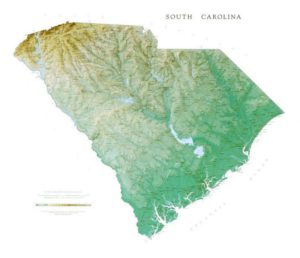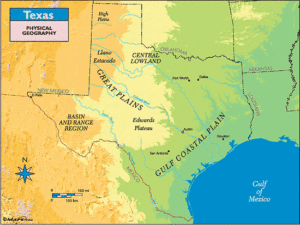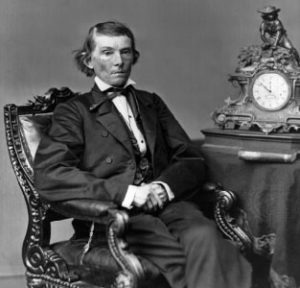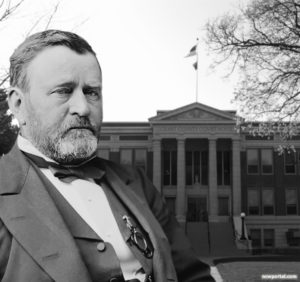 What caused the American Civil War? Historians are hesitant to assign just one cause to anything. There are always many factors that come together to create an event, but that doesn’t mean there can’t be a primary cause.
What caused the American Civil War? Historians are hesitant to assign just one cause to anything. There are always many factors that come together to create an event, but that doesn’t mean there can’t be a primary cause.
Where do we go to find the primary cause for the Civil War? I suggest we look carefully at the official secession declarations of the various Southern states. They went to great pains to explain why they chose secession.
I’ve read them all. Some are rather lengthy. I’m going to have to be selective in what I use from them because I’m not writing a book here today. Yet I am not taking anything out of context. You can always check on me by reading them yourself.
What we will find in these declarations is a consistent thread for the secession rationale.
 Let’s begin with South Carolina, the state that led all the others into secession.
Let’s begin with South Carolina, the state that led all the others into secession.
Upset that the Northern states fought against the Fugitive Slave Law, South Carolina declared that the resistance to the law was tantamount to breaking the covenant, thereby allowing the state to leave. What bothered South Carolina specifically was any attempt to abolish slavery or help runaway slaves:
They have denounced as sinful the institution of slavery; they have permitted open establishment among them of societies, whose avowed object is to disturb the peace and to eloign the property of the citizens of other States.
The declaration then turned to the election of Lincoln:
A geographical line has been drawn across the Union, and all the States north of that line have united in the election of a man to the high office of President of the United States, whose opinions and purposes are hostile to slavery.
He is to be entrusted with the administration of the common Government, because he has declared that that “Government cannot endure permanently half slave, half free,” and that the public mind must rest in the belief that slavery is in the course of ultimate extinction.
The quote comes from Lincoln’s “House Divided” speech, but it’s taken out of context. What Lincoln actually said was that the nation couldn’t continue half-slave, half-free, and that it would eventually go one way or the other: either all states would have slavery or none would. South Carolina left out the other half of the quote. That’s historical revisionism/falsification; it’s inherently dishonest.
While South Carolina used states’ rights in its rationale, those rights were in the defense of slavery.
Mississippi, in its secession declaration was quite bold:
Our position is thoroughly identified with the institution of slavery—the greatest material interest of the world. Its labor supplies the product which constitutes by far the largest and most important portions of commerce of the earth.
An economic rationale is offered, but again, it’s in the context of protecting slavery. Then there’s this startling statement:
These products are peculiar to the climate verging on the tropical regions, and by an imperious law of nature, none but the black race can bear exposure to the tropical sun. These products have become necessities of the world, and a blow at slavery is a blow at commerce and civilization.
So blacks need to be slaves because they are the only ones who can stand the intense heat of the sun. To rid the nation of slavery would kill both commerce and civilization, according to the Mississippians.
Georgia, meanwhile, focused on another concern:
For the last ten years we have had numerous and serious causes of complaint against our non-slave-holding confederate States with reference to the subject of African slavery. They have endeavored to weaken our security, to disturb our domestic peace and tranquility, and persistently refused to comply with their express constitutional obligations to us in reference to that property, and by the use of their power in the Federal Government have striven to deprive us of an equal enjoyment of the common Territories of the Republic.
That complaint had to do with the exclusion of slavery in the territory won from Mexico in the recent war. Georgia believed it was only right that since it sent citizens to fight in that war, that any Georgia citizens should be able to move into that territory and hold slaves. The argument rests on the desire to extend slavery.
 Then there is Texas, which provided the most combative of the declarations, accusing the Northern states of
Then there is Texas, which provided the most combative of the declarations, accusing the Northern states of
an unnatural feeling of hostility to these Southern States and their beneficent and patriarchal system of African slavery, proclaiming the debasing doctrine of equality of all men, irrespective of race or color– a doctrine at war with nature, in opposition to the experience of mankind, and in violation of the plainest revelations of Divine Law.
Now we are being told that God has ordained African slavery. Texas’s explanation continues along this same line:
We hold as undeniable truths that the governments of the various States, and of the confederacy itself, were established exclusively by the white race, for themselves and their posterity; that the African race had no agency in their establishment; that they were rightfully held and regarded as an inferior and dependent race, and in that condition only could their existence in this country be rendered beneficial or tolerable.
Rightfully regarded as inferior? They can be tolerated only as slaves?
The servitude of the African race, as existing in these States, is mutually beneficial to both bond and free, and is abundantly authorized and justified by the experience of mankind, and the revealed will of the Almighty Creator, as recognized by all Christian nations.
Using Christian faith as the basis for treating other human beings as less than human is abominable.
 Those are the “official” declarations. We also have testimony from Alexander H. Stephens, the vice-president of the Confederacy, in his infamous “Cornerstone” speech delivered on 21 March 1861, in which he noted,
Those are the “official” declarations. We also have testimony from Alexander H. Stephens, the vice-president of the Confederacy, in his infamous “Cornerstone” speech delivered on 21 March 1861, in which he noted,
The prevailing ideas entertained by him [Jefferson] and most of the leading statesmen at the time of the formation of the old constitution, were that the enslavement of the African was in violation of the laws of nature; that it was wrong in principle, socially, morally, and politically.
He got his history correct on that point, but he went on to say,
Those ideas, however, were fundamentally wrong. They rested upon the assumption of the equality of races. This was an error. It was a sandy foundation, and the government built upon it fell when the “storm came and the wind blew.”
Our new government is founded upon exactly the opposite idea; its foundations are laid, its corner- stone rests upon the great truth, that the negro is not equal to the white man; that slavery — subordination to the superior race — is his natural and normal condition. This, our new government, is the first, in the history of the world, based upon this great physical, philosophical, and moral truth.
Superior race? A hint of things to come in the twentieth century? And as with the Texas declaration, Stephens brings God in on his side:
Subordination is his place. He, by nature, or by the curse against Canaan, is fitted for that condition which he occupies in our system. . . .
By experience we know that it is best, not only for the superior, but for the inferior race, that it should be so. It is, indeed, in conformity with the ordinance of the Creator. It is not for us to inquire into the wisdom of His ordinances, or to question them. For His own purposes, He has made one race to differ from another, as He has made “one star to differ from another star in glory.”
Now, some argue that the common Southern soldier participating in the war was not doing so to defend slavery but his homeland. There is some truth there, but it’s also pretty well established by the evidence that even those who didn’t have slaves (the vast majority of Southerners) nevertheless supported the social system of slavery that existed.
For many of the poorer Southern whites, they liked having at least one segment of the population on a lower social rung than theirs.
 Ulysses Grant, in his memoirs, shared his thoughts when Lee surrendered at Appomattox:
Ulysses Grant, in his memoirs, shared his thoughts when Lee surrendered at Appomattox:
I felt like anything rather than rejoicing at the downfall of a foe who had fought so long & valiantly, & had suffered so much for a cause, though that cause was, I believe, one of the worst for which a people ever fought, & one for which there was the least excuse [emphasis mine].
It was an awful cause for which to fight. All the talk of states’ rights, tariffs, commerce, etc., cannot conceal the obvious truth: slavery was at the heart of secession. Without the existence of slavery in the mix of causes, there would have been no civil war.
Today’s post is an attempt to provide the evidence for slavery as the primary reason for the Civil War. I’ve added what I believe are appropriate comments about that evidence. I can do no less. I can do no more. The decision whether to accept this evidence rests with those who read what I have written.
